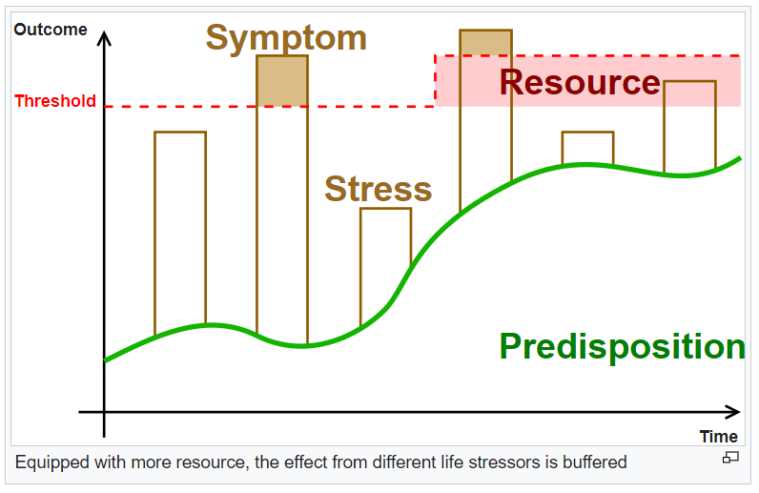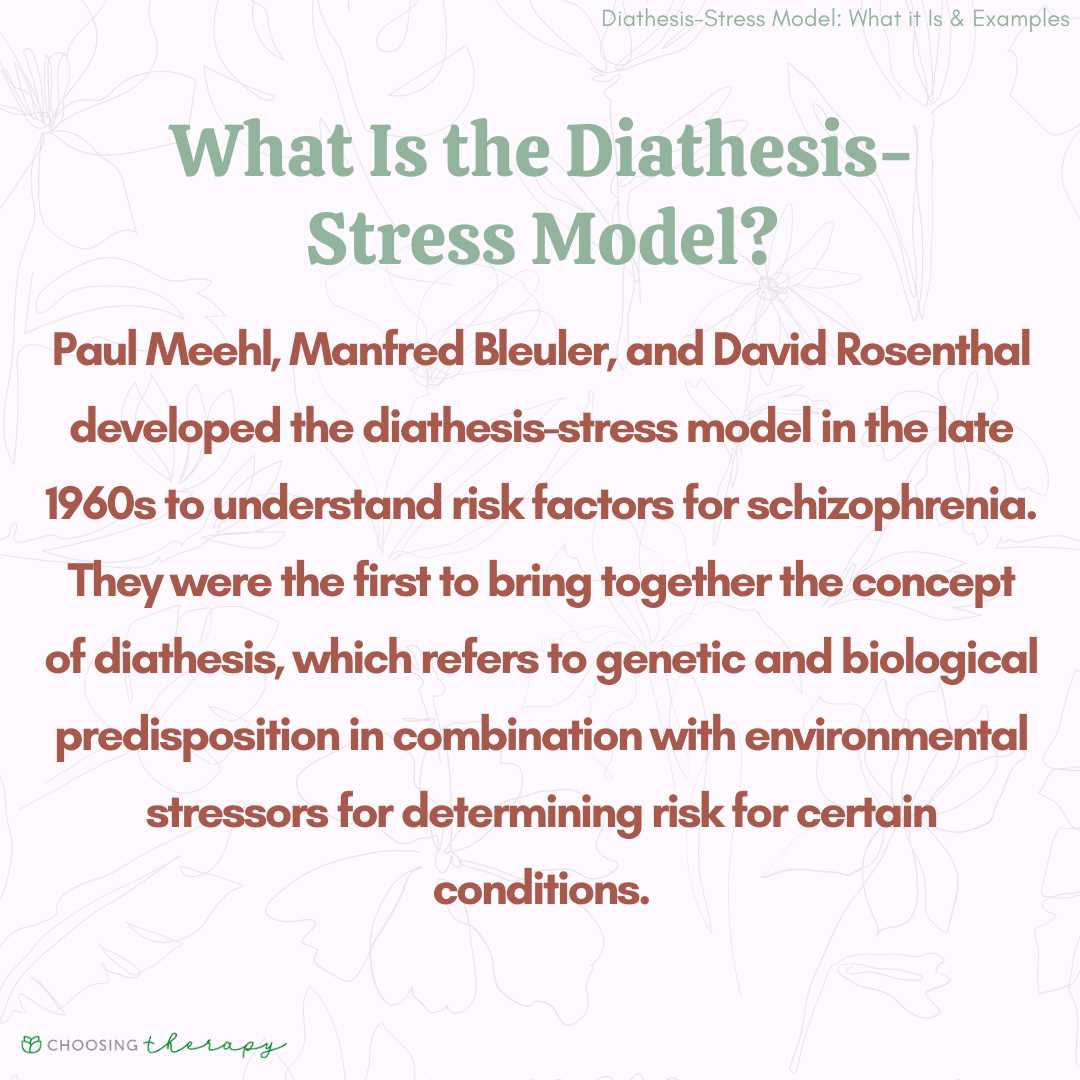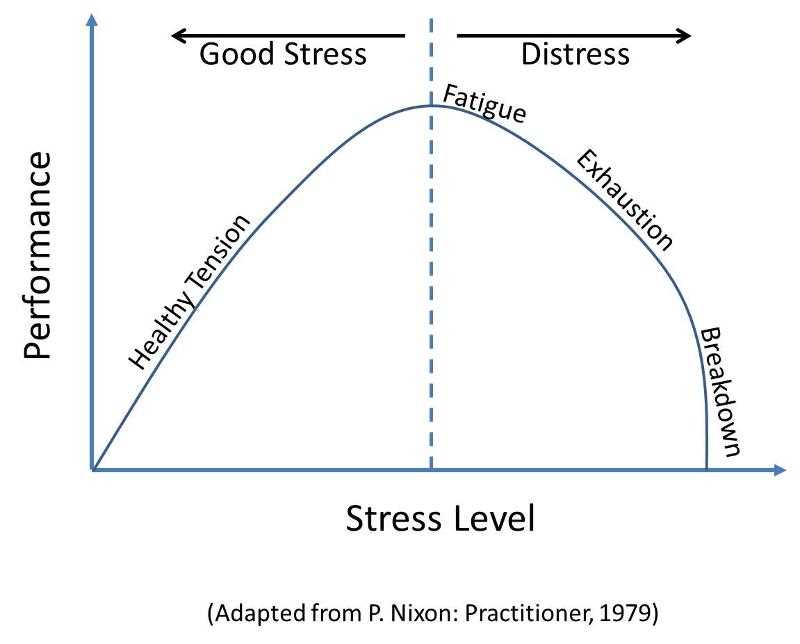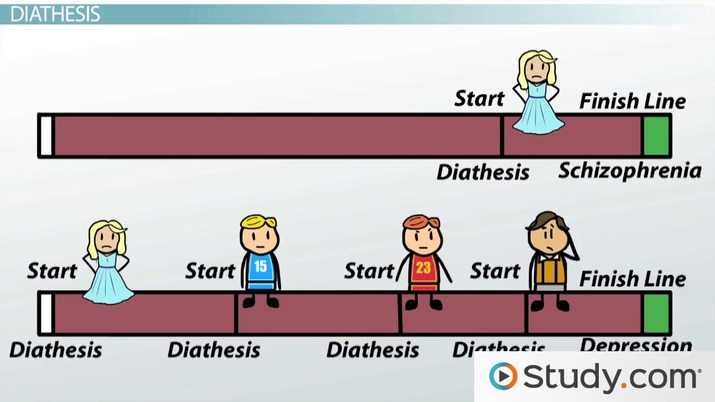
Resilience is a fundamental aspect of human coping and adaptation. It is the ability to bounce back from adversity, to withstand stress, and to maintain mental well-being in the face of challenges. Understanding the factors that contribute to resilience is crucial for promoting mental health and preventing psychopathology.
One important concept in understanding resilience is the diathesis-stress model. According to this model, resilience is influenced by both individual vulnerability (diathesis) and environmental stressors. Diathesis refers to the predisposition or susceptibility to develop psychopathology, while stressors are the external factors that can trigger or exacerbate mental health issues.
In other words, resilience is not simply a matter of having a strong personality or being immune to stress. It is a complex interplay between our inherent vulnerabilities and the challenges we face in our environment. Building resilience involves recognizing and understanding our diathesis, as well as developing strategies to cope with stress and adapt to our surroundings.
Understanding Diathesis Stress Resilience

Diathesis refers to an individual’s susceptibility or vulnerability to developing a certain condition or disorder. In the context of mental health, diathesis can refer to a predisposition to psychopathology or other mental health issues. It is important to understand that diathesis alone is not enough to cause mental health problems, as it needs to interact with environmental factors and stressors.
Resilience, on the other hand, refers to an individual’s ability to cope with and adapt to stressful situations. It is the capacity to bounce back and recover from adversity. Resilience plays a crucial role in protecting against the development of mental health problems, as it helps individuals to better manage stress and maintain psychological well-being.
Coping strategies and adaptation are key components of resilience. Individuals with high levels of resilience are better able to utilize effective coping mechanisms, such as seeking social support, problem-solving, and positive reframing. They are also more likely to adapt to new and challenging situations, finding ways to navigate through difficulties and maintain a sense of balance.
Understanding diathesis stress resilience involves recognizing the intricate interplay between an individual’s vulnerability, the environment, and the presence of stress. While some individuals may have a higher diathesis for developing mental health problems, the presence of protective factors in the environment, such as a supportive family or a stable social network, can help mitigate the impact of stress and promote resilience.
Stress, whether it is acute or chronic, can have a significant impact on mental health. It can exacerbate existing vulnerabilities and increase the risk of developing psychopathology. However, individuals with high levels of resilience are better equipped to manage and cope with stress, reducing the negative impact it can have on their mental well-being.
Overall, understanding diathesis stress resilience is crucial in the field of mental health. It highlights the importance of both individual vulnerabilities and protective factors in the environment. By enhancing resilience through the development of effective coping strategies and adaptation skills, individuals can better navigate through life’s challenges and maintain their mental well-being.
| Key Words |
|---|
| Diathesis |
| Resilience |
| Coping |
| Adaptation |
| Vulnerability |
| Environment |
| Stress |
| Psychopathology |
Exploring the Concept of Diathesis Stress Resilience

Diathesis stress resilience is a concept that explores the interaction between genetics, coping mechanisms, and the environment in determining an individual’s ability to adapt and overcome stress. It focuses on the idea that some individuals may have a genetic predisposition, or diathesis, that makes them more vulnerable to developing psychopathology under stressful conditions.
Resilience, on the other hand, refers to an individual’s ability to bounce back and recover from adversity. It is influenced by various factors, including genetics, coping strategies, and the environment. Diathesis stress resilience looks at how these factors interact and contribute to an individual’s overall resilience.
Genetics plays a significant role in diathesis stress resilience. Certain genetic variations can make individuals more susceptible to stress-related disorders, while others may provide protective factors. Understanding these genetic factors can help identify individuals who may be at a higher risk for developing psychopathology and tailor interventions accordingly.
Coping mechanisms are another important aspect of diathesis stress resilience. How individuals cope with stress can greatly impact their ability to adapt and overcome challenges. Effective coping strategies, such as problem-solving and seeking social support, can enhance resilience and help individuals navigate stressful situations.
The environment also plays a crucial role in diathesis stress resilience. Adverse life events, such as trauma or chronic stress, can increase vulnerability to psychopathology. On the other hand, a supportive and nurturing environment can promote resilience and buffer the negative effects of stress.
In conclusion, diathesis stress resilience is a complex concept that involves the interaction between genetics, coping mechanisms, and the environment. It recognizes that individuals have varying levels of vulnerability and adaptability to stress. By understanding these factors, we can better identify and support individuals who may be at risk for developing psychopathology and promote their resilience.
What is Diathesis Stress Resilience?

Diathesis Stress Resilience refers to an individual’s ability to cope with psychopathology and adapt to stressful situations. It is the capacity to bounce back from adversity and maintain mental well-being in the face of challenges.
At its core, resilience involves a combination of genetic and environmental factors. Diathesis, which refers to a predisposition or vulnerability, plays a crucial role in determining an individual’s susceptibility to stress and psychopathology. This diathesis can be influenced by genetics, early life experiences, and other factors.
Stress, on the other hand, refers to the physiological and psychological responses to challenging or threatening situations. It can range from everyday stressors to major life events. Resilience involves the ability to effectively manage and adapt to stress, mitigating its negative impact on mental health.
Building resilience involves developing coping strategies and skills that allow individuals to navigate difficult circumstances. This can include seeking support from others, practicing self-care, engaging in healthy behaviors, and cultivating a positive mindset.
Understanding the interplay between diathesis, stress, and resilience is crucial for promoting mental well-being. By recognizing and addressing the factors that contribute to vulnerability and stress, individuals can work towards building their resilience and maintaining good mental health.
The Role of Genetics and Environment

Resilience, the ability to adapt and cope with stress, is influenced by a combination of genetic and environmental factors. Both genetics and the environment play a crucial role in determining an individual’s level of vulnerability to stress and their ability to bounce back from challenging situations.
Genetics contribute to resilience through the diathesis-stress model, which suggests that certain genetic factors can create a predisposition or vulnerability to developing mental health disorders in response to stress. These genetic factors can influence how an individual’s brain and body respond to stress, affecting their ability to regulate emotions, process information, and maintain mental well-being.
However, it is important to note that genetics alone do not determine an individual’s resilience. The environment also plays a significant role in shaping resilience. The quality of one’s environment, including factors such as social support, access to resources, and exposure to adversity, can either enhance or hinder resilience.
Positive environmental factors, such as a supportive family, nurturing relationships, and access to education and healthcare, can help individuals develop the skills and resources necessary to cope with stress and build mental strength. On the other hand, adverse environmental factors, such as trauma, neglect, or poverty, can increase the risk of developing mental health disorders and decrease resilience.
Understanding the interplay between genetics and the environment is crucial for building resilience and promoting mental well-being. By recognizing the genetic and environmental factors that contribute to vulnerability and resilience, individuals and communities can take proactive steps to create environments that foster resilience and provide support to those in need.
In conclusion, resilience is a complex trait influenced by both genetics and the environment. While genetics can contribute to vulnerability or resilience, the environment plays a crucial role in shaping an individual’s ability to adapt and cope with stress. By acknowledging the importance of both factors, we can work towards building mental strength and promoting well-being for all.
Building Mental Strength for Resilience
Resilience is the ability to cope with and adapt to stress and adversity. It involves a combination of genetics, vulnerability, and environmental factors. While some individuals may be more prone to psychopathology and difficulties in handling stress, others have a natural resilience that helps them bounce back from challenges.
Building mental strength for resilience involves understanding the factors that contribute to vulnerability and developing strategies to overcome them. Genetics play a role in determining an individual’s susceptibility to mental health issues, but they are not the sole determinant. Environmental factors, such as childhood experiences, support systems, and access to resources, also play a significant role.
One of the key aspects of building mental strength for resilience is developing effective coping mechanisms. This involves learning healthy ways to manage stress and emotions, such as practicing mindfulness, engaging in physical activity, or seeking support from loved ones. Building a strong support network can provide a buffer against stress and increase resilience.
Another important aspect is understanding and challenging negative thought patterns. Negative thinking can contribute to feelings of helplessness and hinder resilience. By identifying and replacing negative thoughts with more positive and realistic ones, individuals can build mental strength and enhance their ability to bounce back from adversity.
Resilience is not a fixed trait, but rather a skill that can be developed and strengthened over time. By focusing on personal growth, setting realistic goals, and cultivating a positive mindset, individuals can enhance their ability to adapt and thrive in the face of challenges.
In conclusion, building mental strength for resilience involves a combination of genetics, vulnerability, and environmental factors. By developing effective coping mechanisms, challenging negative thought patterns, and cultivating a positive mindset, individuals can enhance their ability to cope with stress and adversity. Resilience is a skill that can be learned and strengthened, and it plays a crucial role in promoting mental well-being and overall adaptability.

I am Patrina de Silva, a psychologist and mental health blogger in Sri Lanka. After obtaining psychology degrees from the University of Colombo and Monash University, I returned home to work as a counselor while also starting the popular blog “Pressy but Happy” to provide advice on psychological issues. Over the past decade, my empathetic articles have made my blog a leading mental health resource in the country. In addition to writing, I maintain a private therapy practice, frequently volunteer counseling time, and conduct seminars, driven by my passion for destigmatizing mental illness and educating the public on the mind-body connection. I strive to be an influential voice in my field through my compassionate approach.
